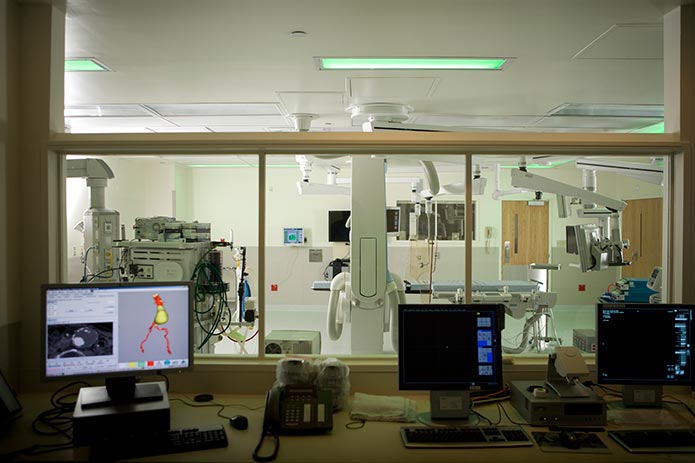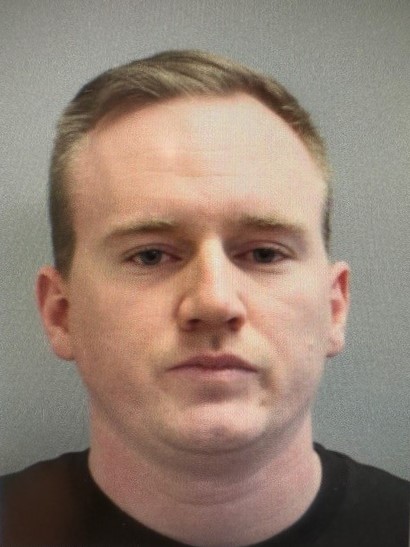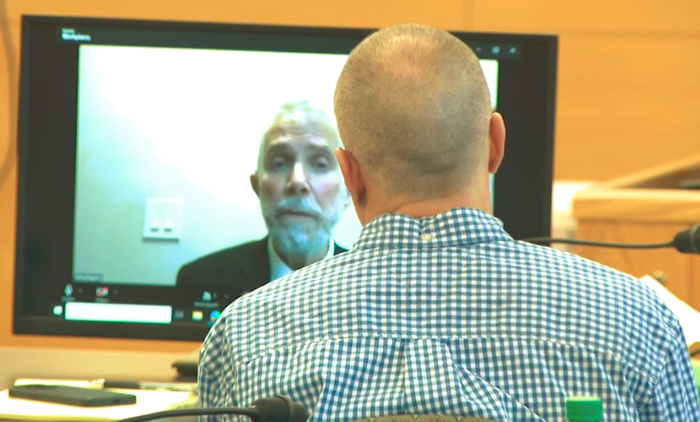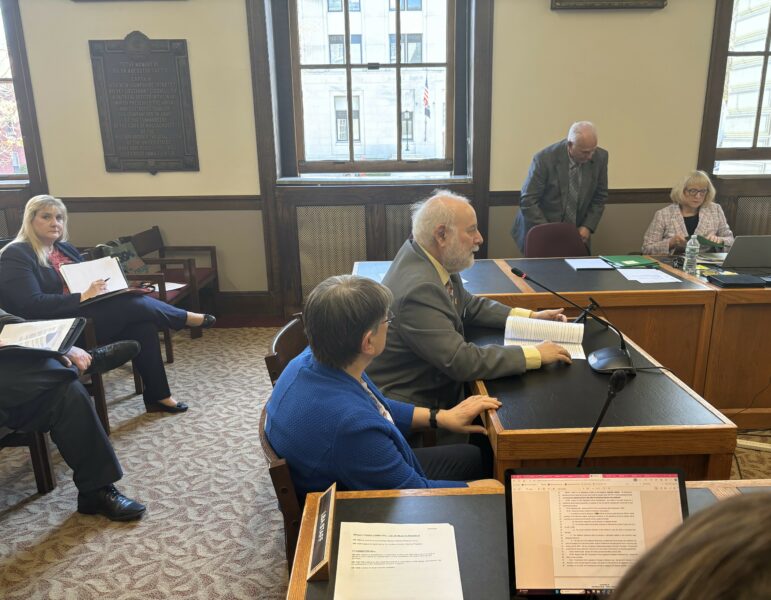Sign up for InDepthNH.org’s free weekly newsletter and Sunday weekender 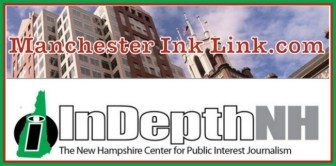
By GARRY RAYNO, Distant Dome
For nearly 39 years, hospitals’ uncompensated care has been the gift that keeps on giving.
From the early 1990’s to today, the ebb and flow between hospitals and lawmakers has ranged from kumbaya moments to volcanic eruptions over uncompensated care.
Back in the early 1990’s, a federal program to help hospitals who treat a large number of Medicaid, Medicare and uninsured patients, called disproportionate share hospitals (DSH), was the basis of what came to be known as Mediscam.

Garry Rayno
Over the years, the Medicaid Enhancement Tax was used to tax hospitals, use the money to match federal Medicaid dollars, and then given back to the hospitals. The state kept the federal money to help balance the state budget which was running a several hundred million dollar deficit when it was first enacted.
The MET assessed a straight 6 percent tax on all hospital services allowed under the Medicaid program to all patients.
Over the years, the state reaped more than $2 billion from the DSH program through the Medicaid Enhancement Tax.
The program was so successful here and in other states the federal government tried to lessen its expenditures.
The feds decided the MET money returned to the hospitals had to correspond to each hospital’s uncompensated care, not to simply return what each hospital paid.
With this requirement, the state used half of the MET returns to match federal dollars for the DSH program and the other half went to the state’s general fund.
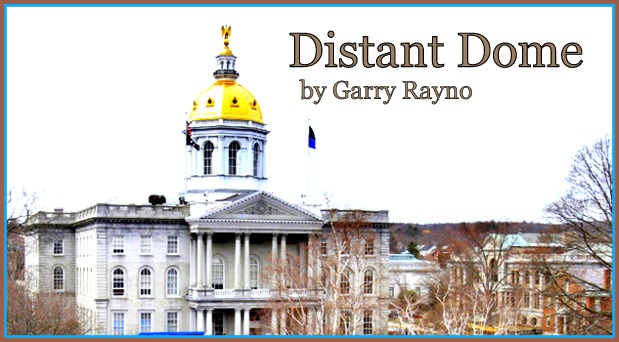
The new provision created winners and losers among hospitals but not enough of a disparity to upset the status quo.
Hospitals did minimize their MET tax liability, mainly by claiming fewer outpatient services were subject to the tax.
The changes created an at-times contentious relationship between lawmakers and hospitals and the tension grew after the 2010 elections gave Republicans 75 percent of the House and Senate, enough to easily override any veto from former Democratic Gov. John Lynch.
During the 2011 session, lawmakers crafted a budget that returned only 15 percent of the MET to hospitals with only the state’s small rural hospitals receiving help while the larger hospitals received no state aid.
For the large hospitals the Medicaid Enhancement Tax was now an actual tax not a shell game and they sued claiming the tax was unconstitutional.
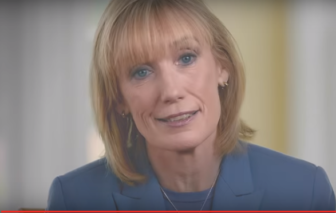
Sen. Maggie Hassan, D-NH
The hospitals argued successfully other facilities such as ambulatory surgical centers and independent laboratories provided the same services they did but did not pay the MET.
The state constitution says a tax has to be fair and proportional while the federal constitution has a similar phrase called “equal protection,” and a state superior court judge found in 2014 the tax violated both provisions
It was the second ruling against the tax in two months and state officials led by then Gov. Maggie Hassan decided it would be far better to reach a settlement with the hospitals.
The agreement essentially returns the tax to its original methodology ensuring the money raised was used for health-care expenses only and restores uncompensated care aid to the large hospitals, but with no guarantees of 100 percent reimbursement.
The rising costs of hospitals’ uncompensated care helped drive up private health insurance premiums through cost shifting.
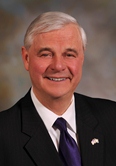
Sen. Jeb Bradley, R-Wolfeboro
Senate Majority Leader Jeb Bradley, R-Wolfeboro, called it a huge hidden tax on the state’s population. At the time, uncompensated care for the state’s hospitals was over $400 million annually.
The growth in uncompensated care helped spur lawmakers to first approve Medicaid expansion in 2014 after several years of failure.
Uncompensated care also helped drive the decision to use private insurers for Medicaid expansion because of their higher reimbursement rates than Medicaid and Medicare.
And the Affordable Care Act foresaw the decrease in uncompensated care for all providers as more of the nation’s citizens gained health insurance. The act reduced federal money for the DSH program, providing incentives for hospitals to join the networks of exchange insurers.
The Obama administration went further and changed the formula for hospitals to claim uncompensated care and their reimbursement.
The administration targeted “dual eligible” individuals — Medicaid patients with private insurance or Medicare — and said the payments beyond the Medicaid reimbursement rate reduce uncompensated care claims.
This provision is referred to as the third-party payment rule and reduces what hospitals can claim as uncompensated care.
When the guidance was published, many hospitals and their associations sued including New Hampshire claiming the change is a major shift in public policy and does not follow Medicaid statutes.
If a proposed change is a significant shift in public policy, it has to be published on the federal ledger with a public comment period which was not done.
Last year, a federal judge sided with the New Hampshire hospitals and a 1st Circuit Court of Appeals judge upheld the lower court ruling.
The federal court decisions did not address the third-party rule but instead determined the change was significant and required federal posting and a comment period. The third-part payment rule is unenforceable after the court decisions.
However, the New Hampshire legislature failed to foresee this when it crafted its budget for the 2018-19 fiscal years and used a lower figure for uncompensated care which amounts to a $71 million problem.
Budget writers allocated $166 million for the uncompensated care fund this fiscal year, while the hospitals say the court ruling allows them to claim $237 million.
The state and federal governments would split the $71 million shortfall.
With three weeks to go to act on bills before conference committees meet to resolve differences, there is little time for budget writers to find the money to address the shortfall.
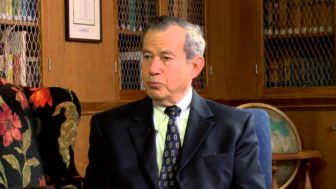
Rep. Neal Kurk, R-Weare
One proposal will have a public hearing Tuesday before the House Finance Committee. The plan from committee chair Rep. Neal Kurk, R-Weare, would expand the MET to include health-care services provided by nursing facilities, ambulatory surgical centers, therapists, laboratories, radiologists and other nursing services.
The new health-care providers would pay the going rate of 5.4 percent and the money would go into the uncompensated care fund.
The proposal, which will be heard at 11 a.m. in rooms 210-211 of the Legislative Office Building, is bound to draw a crowd as the targeted turn out in force to oppose the plan.
Negotiations are ongoing between budget writers, the governor’s office, Health and Human Services officials and the hospitals.
If the past is any indication, compromise will eventually arrive but it may require a special session to resolve.
Oh, yes, and the state is required to pay the hospitals their DSH payments by May 31. No pressure here.
Garry Rayno may be reached at garry.rayno@yahoo.com
Distant Dome by veteran journalist Garry Rayno explores a broader perspective on the State House and state happenings. Over his three-decade career, Rayno covered the NH State House for the New Hampshire Union Leader and Foster’s Daily Democrat. During his career, his coverage spanned the news spectrum, from local planning, school and select boards, to national issues such as electric industry deregulation and Presidential primaries. Rayno lives with his wife Carolyn in New London.
